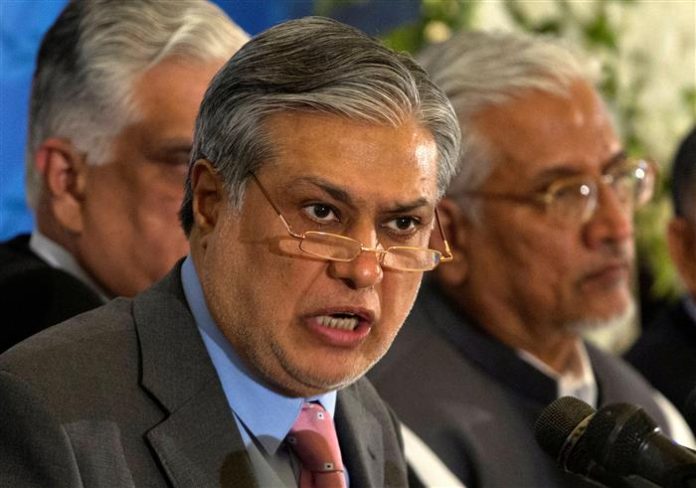Islamabad: Cash-strapped Pakistan has secured about USD 13 billion in additional financial support from its traditional allies China and Saudi Arabia, Finance Minister Ishaq Dar has said, as the government tries to steady the country’s weak economy.
Dar said that under the new financial support Pakistan would be getting about USD 9 billion from China and USD 4 billion from Saudi on top of assurances for about USD 20 billion in investments, the Dawn newspaper reported.
He said that during Prime Minister Shehbaz Sharif’s recent visit to Beijing, the Chinese leadership promised to roll over USD 4 billion in sovereign loans, refinance USD 3.3 billion commercial bank loans and increase currency swap by about USD 1.45 billion — from 30 billion yuan to 40 billion yuan. The total worked out at USD 8.75 billion.
“They promised the security of financial support,” Dar, who recently took over as the new finance minister of Pakistan from his predecessor Miftah Ismail, said and quoted Chinese President Xi Jinping as telling Sharif, “don’t worry, we will not let you down”.
These would be rolled over whenever they reach maturity, the minister said, adding that about USD 200 million worth of commercial loans had already flowed in a few days back.
Responding to a question, Dar said the Chinese side had also agreed to fast-track the processing for a USD 9.8 billion high-speed rail project (Main Line-1) from Karachi to Peshawar and both sides would immediately activate their respective teams.
The minister said he had also suggested a part of the outstanding dues of Chinese power producers to be converted into overall debt stock and had already cleared about Rs 160 billion in recent months.
Responding to another question, Dar said Saudi Arabia had also “given a positive response” to Pakistan’s request for increasing its financing by another USD 3 billion to USD 6 billion and doubling its deferred oil facility of USD 1.2 billion, the report said.
The two heads worked out at USD 4.2 billion and the finance minister said there was no delay except a month or so of processing time, the report said.
Dar said Saudi Arabia had also agreed to revive the USD 10-12 billion petrochemical refining project at Gwadar, for which he had been assigned by the prime minister to coordinate with respective ministries for finalisation.
On top of that, the minister said Pakistan was engaging Saudi Arabia in privatisation transactions like in LNG power projects and shares in other entities to ensure non-debt creating foreign inflows.
Moreover, the minister said another USD 1.4 billion worth of inflows were almost mature, including USD 500 million from the Asian Infrastructure Investment Bank (AIIB) and two World Bank loans of USD 900 million under the national harmonisation of general sales tax.
Pakistan had been engaging with China and Saudi Arabia for financial support, including rolling over maturing loans as part of arrangements for about USD 35 billion putouts against debt and liabilities during the current fiscal year.
The minister parried a question relating to the extension in debt repayments of Chinese Independent Power Producers (IPPs).
As part of the 7th and 8th quarterly reviews of the International Monetary Fund, Pakistan and the IMF had estimated total external financing needs at about USD 33-34 billion, but this did not include the requirements of flood damages.
The minister said the leadership of Beijing-based Asian Infrastructure Investment Bank (AIIB) had welcomed Pakistan’s announcement of not seeking Paris Club debt rescheduling, ensuring international bond payments on maturity, and completing the ongoing IMF programme.
Last month, Dar made it clear that Pakistan would rather seek to reschedule bilateral debt that now stands at around USD 27 billion to secure greater breathing space in foreign loan repayments amid tight external account conditions.
Foreign exchange reserves held by the State Bank of Pakistan rose to USD 8.91 billion during the week ended on October 28.
The country’s total reserves now stand at USD 14.68 billion, including USD 5.77 billion held by commercial banks, according to Dawn.


